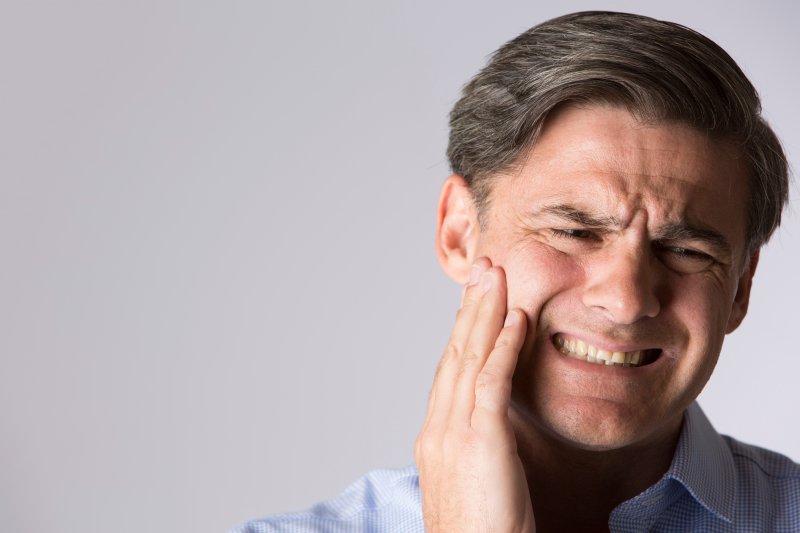
Have you ever had to go to the dentist for emergency dental work? Having to stop in the middle of work, dinner, or a night out on the town due to a dental emergency is never a fun time. Though there is never a guarantee that you won’t damage your smile out of nowhere, there are a few things you can do to lower your risk. Read on to learn five tips that will make you less likely to encounter a dental emergency.
Tip #1: Brush Regularly
As you know, brushing your teeth is a key part of preventing oral health issues. This is because doing so removes plaque, bacteria, and food particles from your pearly whites. Be sure to brush twice per day, once before breakfast and once before bed. Do so for two minutes each time and use a toothbrush with soft bristles and toothpaste that contains fluoride to strengthen your teeth and avoid scratching your enamel.
Tip #2: Floss Often
Though brushing gets rid of most of the plaque and bacteria on your teeth, skipping the floss can mean bad news for your smile. dental floss removes 40% of plaque, which sharply lowers your risk of cavities. Be sure to floss at least once per day, preferably before bed or after your last meal. If you have trouble using traditional floss due to mobility issues or other factors, consider purchasing a water flosser.
Tip #3: Limit Your Sugar Intake
The sugar in the food and drinks we consume feeds harmful oral bacteria. These bacteria release acids that attack our tooth enamel and make us more likely to develop cavities. To lower your risk of tooth decay, cut back on the amount of sugar you eat. You should also cut back on how many starchy and carb-heavy foods you eat since these break down into sugar in the mouth.
Tip #4: Wear a Mouthguard
If you play contact sports like football, hockey, and rugby, be sure to wear a mouthguard. This will protect your gums, teeth, and jaw if you get hit in the mouth. You should also wear a nightguard if you have bruxism, which is characterized by teeth grinding and jaw clenching, or if you have temporomandibular joint dysfunction (TMD). You can purchase mouthguards over the counter at many grocery, drug, and sporting goods stores or speak with your dentist about having one custom-made.
Tip #5: Stay Hydrated
When you aren’t producing enough saliva, this leads to dry mouth. Harmful oral bacteria flourish in this dry environment, which makes you more likely to develop oral health issues like gum disease, cavities, and mouth sores. Drink plenty of water during the day to avoid these issues. You can also suck on sugar-free candy, chew sugarless gum, or munch on crisp, fresh fruits and veggies like carrots and apples to increase your saliva production.
If you follow the above tips and still encounter a dental emergency, contact your dentist as soon as possible. They will be able to administer the care you need to get your smile back on track!
About the Author
Dr. Derek Funk leads the team of kind, talented oral health professionals at Sweeny Family Dental. He administers care to patients of all ages in the Sweeny area and is here to help if you ever have a dental emergency. He also offers preventive treatments like checkups and cleanings to lessen your risk of oral health issues. To learn more or to schedule an appointment with Sweeny Family Dental, visit their website or call (979) 401-2962.

